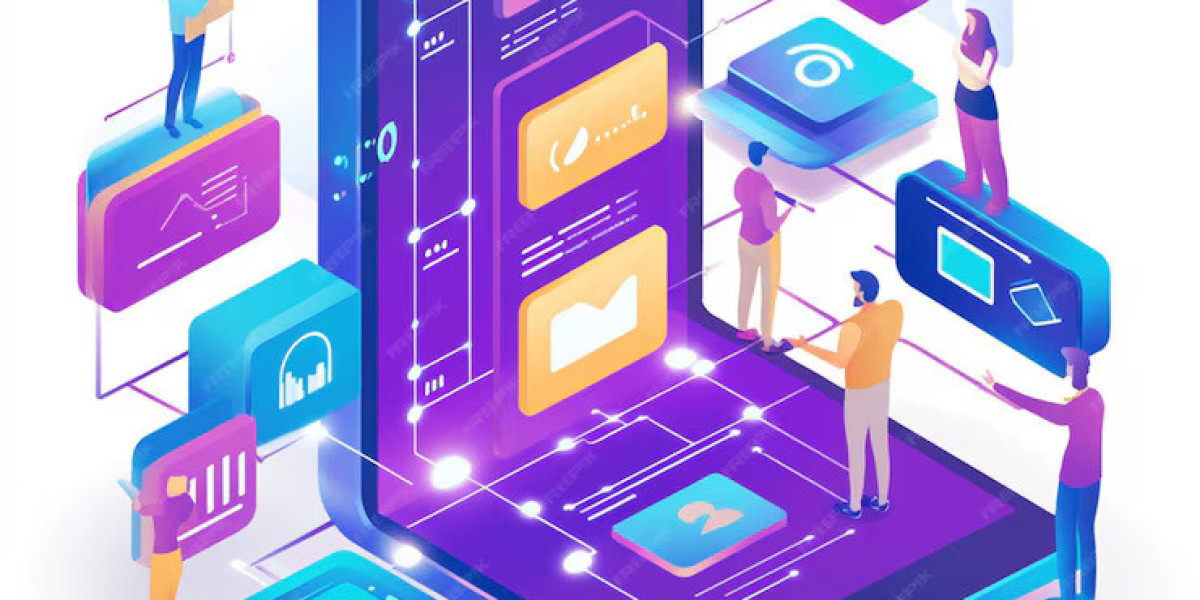Introduction: The Evolution of Indian Higher Education
Over the past few decades, higher education in India has experienced a profound transformation. Once rooted in conventional teaching methods and rigid structures, Indian universities are now becoming dynamic centers of learning that integrate technology, innovation, and multidisciplinary approaches. These institutions are increasingly focused on not just imparting academic knowledge but also on developing well-rounded individuals capable of navigating the complexities of the modern world.
This shift in focus comes in response to the evolving demands of the 21st-century workplace. Industries today are looking for graduates who are not just technically proficient but also creative, adaptive, and capable of solving real-world problems. Indian universities, recognizing this need, are transforming their curricula, teaching methods, and overall approach to education.
This article delves into how Indian universities, with a special emphasis on Dev Bhoomi Uttarakhand University (DBUU), are leading the way in preparing students for the future. We will explore how these institutions are focusing on holistic development, research and innovation, industry collaboration, and preparing students for global careers.
The Changing Role of Universities in Modern India
Historically, universities in India were seen as institutions where students would go to acquire theoretical knowledge. While this foundation remains important, modern universities are doing much more than just preparing students for exams. They are shaping future leaders by offering diverse learning experiences, practical exposure, and opportunities to engage in groundbreaking research.
1. Emphasis on Interdisciplinary Learning
In today’s fast-paced world, the ability to think critically and across disciplines is crucial. Modern universities are responding to this need by offering interdisciplinary programs that combine traditional fields like engineering and management with emerging areas such as artificial intelligence, data science, and environmental sustainability.
These programs not only equip students with specialized knowledge but also give them the tools to think creatively and solve complex problems. By blurring the lines between disciplines, universities are fostering a culture of innovation and collaboration.
2. Digital Transformation in Education
Digital technology has become a cornerstone of modern education, and universities are adopting new tools to enhance the learning experience. From online platforms that provide students with access to course materials and interactive learning environments to advanced simulation tools and virtual labs, the digital transformation in education is offering students greater flexibility and opportunities for self-paced learning.
This digital shift also opens doors for students to access resources and expertise from around the world, allowing for a more globalized approach to education. Universities are embracing digital transformation not only to stay relevant but to provide a rich, engaging learning experience that aligns with the needs of the modern student.
3. Research and Innovation as Key Drivers
Research is now a central aspect of university life, with institutions placing a strong emphasis on innovation and real-world impact. Universities are creating dedicated research centers, innovation hubs, and partnerships with industry to foster a culture of inquiry and experimentation. Students are encouraged to engage in research projects that address societal challenges, from healthcare and sustainability to technology and agriculture.
By focusing on research and innovation, universities are helping students develop critical thinking skills and a deep understanding of the complexities of their fields. These efforts ensure that graduates are not just passive recipients of knowledge but active contributors to the advancement of their respective industries.
Dev Bhoomi Uttarakhand University: A Leader in Holistic Education
One of the universities at the forefront of this educational revolution is Dev Bhoomi Uttarakhand University (DBUU). Nestled in the foothills of the Himalayas, DBUU is more than just a traditional institution—it’s a beacon of innovation, student development, and academic excellence. The university’s focus on holistic education ensures that students graduate with not just academic knowledge but also the skills, experiences, and mindsets necessary to excel in their careers and lives.
1. A Comprehensive Range of Programs
DBUU offers a wide variety of programs across multiple disciplines, including engineering, management, healthcare, law, and media studies. The university’s commitment to providing quality education is evident in its well-structured and industry-relevant courses.
School of Engineering: The School of Engineering at DBUU is one of its flagship programs, offering courses in cutting-edge fields like computer science, civil engineering, and mechanical engineering. What sets DBUU’s engineering programs apart is their strong emphasis on hands-on learning. Students engage in industry internships, practical projects, and research initiatives, ensuring they graduate with a solid foundation in both theory and practice.
School of Management: DBUU’s management courses focus on leadership, strategy, and entrepreneurship. The university recognizes the need for business leaders who can think globally and act locally, and its programs are designed to provide students with a deep understanding of business principles while fostering innovation and creative problem-solving. Specializations in areas like finance, marketing, and human resources ensure that students are prepared for leadership roles in their chosen fields.
School of Health Sciences: In an era where healthcare is rapidly evolving, DBUU’s health sciences programs stand out for their focus on innovation and patient care. Offering courses in nursing, pharmacy, and allied health sciences, DBUU equips students with the knowledge and practical skills needed to thrive in the healthcare sector. The university’s partnerships with leading hospitals and healthcare organizations provide students with invaluable real-world exposure.
2. Embracing Research and Innovation
DBUU is committed to advancing knowledge and fostering innovation through research. The university’s research initiatives span various disciplines, from engineering and technology to agriculture and healthcare. Students and faculty work together on projects that address pressing global challenges, such as renewable energy, sustainable agriculture, and medical technology.
The university’s Center for Research and Innovation serves as a hub for collaborative research. It provides students with the resources and mentorship needed to explore innovative solutions and contribute to the academic and industrial communities. DBUU’s emphasis on research prepares students to be thought leaders in their fields and equips them with the tools to drive innovation.
3. Industry Collaboration and Career Readiness
One of the key aspects that sets DBUU apart is its strong industry connections. The university actively partners with leading companies across various sectors to provide students with internship opportunities, guest lectures, and collaborative projects. These industry partnerships ensure that students graduate with the practical skills and experience necessary to excel in the workforce.
Internships and Placements: DBUU has a dedicated placement cell that works closely with industries to ensure students are matched with internships and job opportunities that align with their career aspirations. The university boasts an impressive placement record, with students securing positions at top companies in sectors like IT, healthcare, manufacturing, and finance.
Career Development Programs: DBUU also offers a range of career development programs aimed at enhancing students’ employability. These programs include resume-building workshops, interview preparation sessions, and networking events with industry professionals. The university’s holistic approach to career readiness ensures that students not only gain academic knowledge but also develop the soft skills and confidence needed to succeed in their careers.
4. Holistic Student Development
DBUU takes a holistic approach to education, recognizing that academic excellence must be complemented by personal growth and development. The university offers a range of extracurricular activities, support services, and wellness programs designed to help students achieve balance and well-being.
Student Clubs and Societies: DBUU has a vibrant campus life, with numerous clubs and societies that cater to a wide range of interests, from sports and performing arts to entrepreneurship and technology. These clubs provide students with opportunities to pursue their passions, develop leadership skills, and forge lasting connections with their peers.
Sports and Recreation: Physical fitness and recreation are an integral part of student life at DBUU. The university offers state-of-the-art sports facilities and encourages students to participate in activities like football, basketball, and yoga. These programs promote a healthy lifestyle and help students develop teamwork and discipline.
Mental Health and Wellness: Recognizing the importance of mental health, DBUU offers counseling services and wellness workshops to support students’ emotional well-being. The university is committed to creating a supportive environment where students feel empowered to seek help and prioritize their mental health.
The Role of Technology in Shaping the Future of Education
As technology continues to evolve, universities must keep pace with the changes to ensure their students are prepared for the future. Institutions like DBUU are embracing technology in their curricula, using it to enhance the learning experience and prepare students for the digital age.
1. AI and Data Science in Education
Artificial intelligence (AI) and data science are playing a growing role in shaping how universities deliver education. From personalized learning platforms to predictive analytics that help students choose the best academic paths, AI is revolutionizing education. DBUU is exploring ways to integrate AI into its programs to offer students more tailored learning experiences and improve outcomes.
2. Virtual Learning and Global Classrooms
The rise of online education and virtual learning environments has transformed how students access education. Universities are increasingly offering hybrid models that combine in-person and online learning, giving students flexibility in how they engage with their courses. Virtual learning also allows students to collaborate with peers and experts from around the world, creating a truly global learning environment.
Conclusion: The Future of Indian Higher Education
As India continues to grow as a global leader in innovation, technology, and business, its universities must play a critical role in shaping the future workforce. Institutions like Dev Bhoomi Uttarakhand University (DBUU) are leading the charge, offering programs that combine academic excellence with practical experience, industry collaboration, and a strong focus on holistic development.
With a commitment to research, innovation, and student empowerment, DBUU is preparing students to be not just job-ready but future-ready. As Indian universities continue to evolve, they will play a crucial role in driving the country’s growth and shaping the leaders of tomorrow.
For students looking to navigate the complexities of modern education, platforms like Universitychalo offer invaluable guidance, helping them choose the right path and make informed decisions about their future.








